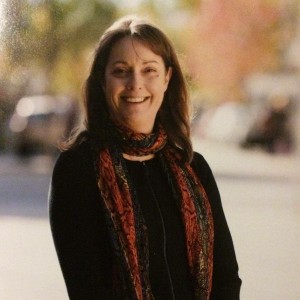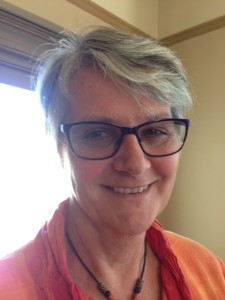We recently caught up with Jill Maxwell (left) and Joc McConnell (right) from Sexual Assault Support Service, Tasmania to hear more about the work they are doing this year.
SASS provides information and support to all people affected by sexual assault, and has been a long time member of the AWAVA Advisory Group. Keep reading to get to know Jill and Joc, and to learn more about the fantastic work they do!
How did you get involved with the sector?
Jill – “I’ve come full circle. I was a police officer for many years in a small country station. About 10 years ago, I left the police force to study psychology and social work, and then worked as family violence counsellor. I also became quite passionate about leadership around this time. So when the opportunity came up for the CEO role as SASS, I went for it! It matched my previous skills and my interest in leadership. Leaving the police force was a difficult decision for me. But I wanted to be intercepting people’s lives before a crisis. To do that, I needed to go to university and figure out where I wanted to be.”
Joc – “I have been working in the area of sexual assault for about eight years. Before that I was in child protection for about four years. I have always been quite passionate about working with children and adults – particularly those who have experienced gross injustice and trauma.”
What are the most rewarding and challenging aspects of your job?
Jill – “I am responsible for the overall functioning of our organisation and the service we provide. In more detail, I focus on our future direction and sustainability. As I said earlier, I am very passionate about leadership. I think of leadership in terms of understanding who we are as people. So the most rewarding part of the role for me is fostering leadership qualities in all people – our clients, our staff, and our stakeholders. Pointing out people’s achievement over time, helping them see that they are more capable than they imagine, is quite special. Interestingly, this is also the most challenging aspect of my job. It can be quite difficult to support people to believe that they can do things they didn’t believe were possible. But helping people push that little bit extra every day and look back on the journey that they have come on and think ‘wow, I didn’t think I would get here’ makes it all worth the effort in the end.”
Joc – “I am a Senior Practitioner so I provide support for staff and clients. As horrific as the act of sexual assault is, often it is the aftermath that creates the stress for a client- particularly with child victims. It is like a great boulder that has been thrown into a pond, causing a tsunami effect. And this tsunami effect is felt not only by the victim themselves, but also by the family and community. This can be a very challenging part of our work here at SASS. Dealing with the legal system can also be quite frustrating at times. It is not unusual for police to do an extensive investigation, and then find they do not have enough evidence to hand to DPP. Our clients can be quite varied. For example, one client called today very distressed saying that she thinks she might know a perpetrator and is finding it very difficult coming to terms with this and didn’t know what to do with this information. Sometimes it is hard to leave my work behind me at five o’clock and not take it home. But I do make sure I debrief with a colleague before heading out the door. SASS takes supervision and staff support very seriously – we have to in this line of work!
The most rewarding part of my job is that we do see the most amazing recovery journeys. And it is such a humbling experience. It is pretty amazing to see people move from that high end trauma response to processing their trauma and integrating their experience into some sort of ‘normality’. Sadly, the justice part of recovery from sexual assault doesn’t happen often enough Very few people actually get to court or see some sort of legal justice.
The other reward is that you do end up working with the most amazing team of like-minded people, who give so much of themselves to their jobs.”
Are you working on anything exciting at the moment?
Joc – “We are really excited about implementing our new ‘trauma-informed’ practice model. One of the biggest things that we see is that choice has been taken away from sexual assault victims. Through the implementation of trauma-informed principles, what we want to do is empower victims and their families to look at the different choices that are available to them. From a trauma informed perspective, we adopt the principles of 1) safety, 2) choice, 3) empowerment, 4) collaboration and 5) trust right across our organisation. These five principles are integral to recovery from sexual assault. While we do this in our day to day practice and interactions with clients, what we are now trying to do is incorporate these principles in our policies and procedures, as well as in interactions with other colleagues. With all our procedures, we ask ourselves – ‘Is this creating a sense of safety? Trust? Choice? Is it empowering? Collaborative?’ – not just for our clients but for others in our workplace. As we implement this model, we are hoping to achieve more collaborative relationships with other organisations and community groups establishing a trauma-informed network of support for our clients. We are sure that this will improve outcomes for our clients.”
Who/what is your inspiration?
Jill – “My mum! She is an amazing lady. Bringing up four children, while coming from a low socio-economic background has meant that she has had to struggle a lot in her life. Looking at her and how she treats people is truly inspiring – she is the most gracious and loving person I have ever met. If I can be half the person she is, I will have lived a good life.”
Joc – “My belief that the human psyche is able to recover from traumatic events. As well – my passion for human rights and social justice. I firmly believe in this and it is what keeps me inspired.”


